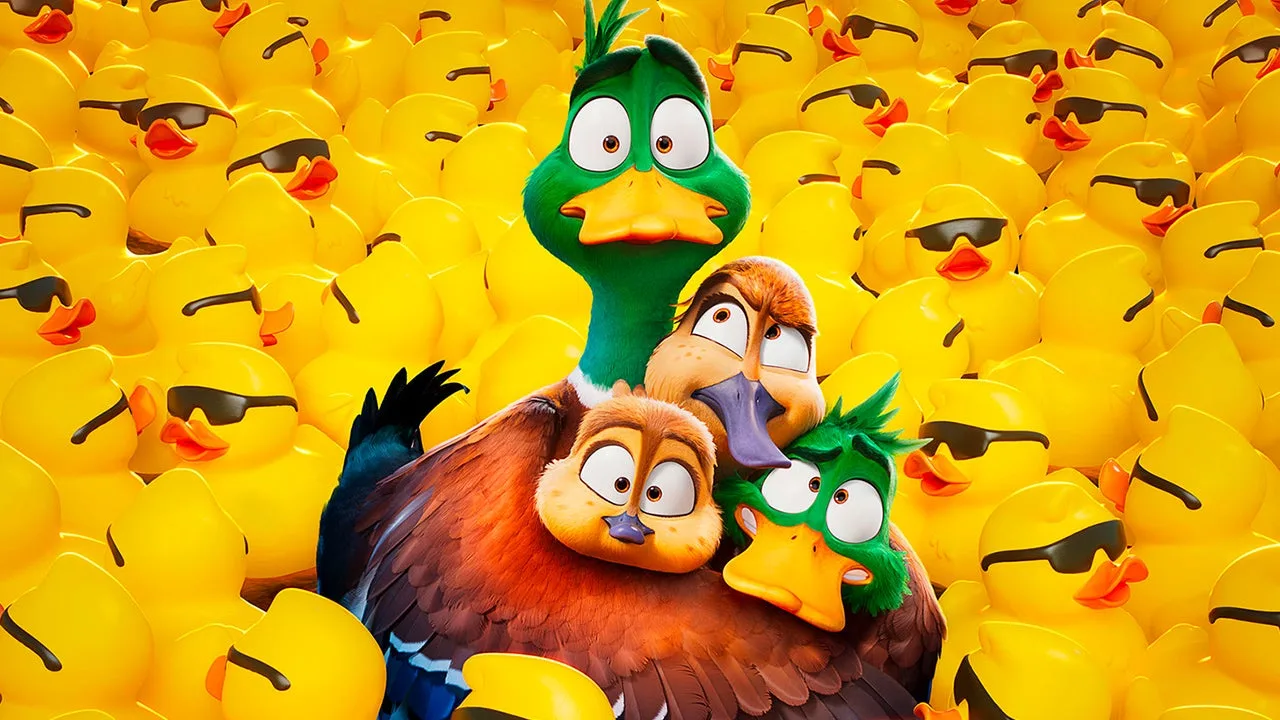Migration Review
Migration is a sign of change for Illumination. Financially, the studio behind the Despicable Me and Sing franchises is thriving: Its Super Mario Bros. Movie is the second-highest grossing film of 2023. But monetary success only takes you so far, and true respect and acclaim still evade the grasp of the Minion-spawning animation house. Often criticized for their cheap gags and stories that play to the broadest possible audience, Illumination makes a bid to shake those labels with the story of a family of ducks – the Mallards, led by Kumail Nanjiani and Elizabeth Banks – keen to leave the familiarity of their pond and see the world.
If other Illumination movies feel like corporate products, the involvement and creative control of Ernest and Celestine co-director Benjamin Renner promised this one would be different. If this was Migration’s lone goal, then it can be marked down as a success: The possesses a focus on relationships and a warmth that’s been glaringly absent from so much of Illumination’s output since the first Despicable Me.
Though the overall arc of the Mallard family’s wind-guided trip to Jamaica is immediately obvious from the film’s opening seconds, Migration does a good job of building the connections between the ducks, sweetening an otherwise tedious plotline. Their motivations for wanting to leave their beautiful, but boring, pond and their desire for adventure are relatable, as is the attitude of the family’s patriarch, Mack (Nanjiani). He only sees danger beyond familiar waters, and prioritizes the safety of his young children (Caspar Jennings and Tresi Gazal) over everything.
When the flock is thrust into the metropolitan landscape of New York City and they have to fight for their survival for the first time, their untainted perception of the world is challenged. This is well-worn territory, and another element of the story that adds to the formulaic nature of the film, but at least you’re left invested in these charming ducklings. Sure, they’re set up as a stereotypical family with a stern dad, a loving mom, and a brash teenage boy with a cute younger sister, but seeing them evolve beyond those stock types is fulfilling. Migration doesn’t take anything for granted – it does the work to ensure an emotional attachment.
The quality of the animation also represents an evolution of Illumination’s past work. The film opens on a gorgeously rendered bedtime story that blends hand-drawn and CG elements. Throughout the rest of the solely CG journey, backgrounds are rendered with a realism that never sacrifices their beauty. Cliffs are tanned with the oranges of autumn leaves and the New York cityscape is painted simultaneously with concrete coldness and bustling life. Particularly impressive is the water animation, which ripples and reflects with stunning realism, and the cloud effects, whose full potential is exhibited in a gorgeous scene where puffy airborne vapors are tossed around like snowballs.
These changing methods of storytelling and animation don’t necessarily serve to shift Illumination’s identity as a whole, but rather create a better version of the typical Illumination film. This brings with it a blanket of frustrating overfamiliarity that overshadows much of Migration’s cool new elements.
Puss in Boots and Spider-Verse set a high bar for daring in kids’ movies that Migration fails to reach.
Most disappointing is the way Migration immediately lays out its entire plot. In a way, wasting no time with getting into each character’s motivations helps the film move at a fast enough pace to stave off boredom, but it shows the hand of the entire film. This makes most of the moments that follow feel hollow, taking away from a strong emotional core due to a lack of creativity in the story structure. Even for a film aimed at a younger audience, the simplicity with which Migration presents itself is becoming increasingly less acceptable. The last two years have seen Puss in Boots: The Last Wish and Across the Spider-Verse tell unique, daring stories within kids’ movies. The bar has been set, and Migration doesn’t reach it.
The typical Illumination brand of humor also rears its head at points. Though Renner made a point of not including any fart jokes, there are still gags that feel just as shoddy. Moments pandering to Facebook moms who’ve grown tired of posting the same old Minions memes are far too frequent. Migration feels torn between the sincerity of the story Renner wanted to tell and the cynicism of what executives think kids want from movies.











Post Comment